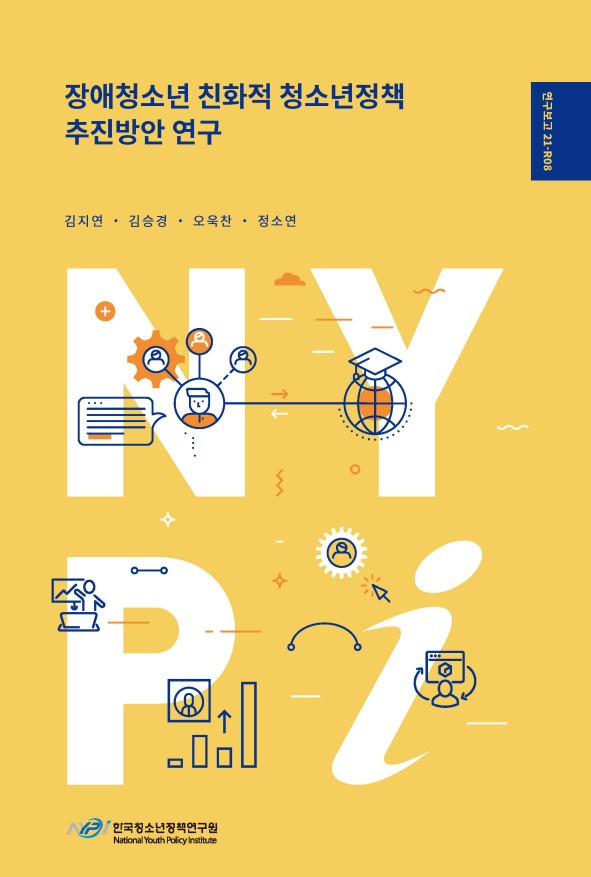
GCED Basic Search Form
Quick Search
Close
현재 위치
자료
장애청소년 친화적 청소년정책 추진방안 연구
출판지역 | 출판년도 | 페이지:
세종 | 2021 | 429 p.
ISBN/ISSN:
ISBN 979-11-5654-316-9
지역:
아시아 태평양 지역

2021년 현재 24세 이하 장애청소년은 약 10만 명으로 우리나라 전체 청소년 인구 대비 약 1% 수준이다. 그러나 이는 ‘등록 장애청소년’만 해당하며, ‘미등록 장애청소년, 법정 장애 유형에 해당하지 않는 장애를 가진 청소년, 신체건강 및 정신건강 문제로 비장애청소년에 비해 일상생활 전반에서 현저한 제약이 있는 청소년’이 제외된 규모다. 우리나라는 장애 유형의 범위가 협소하여 주요국 대비 장애인 출현율이 현저히 낮으며, 아동·청소년기에 장애 등록을 꺼리는 경향 등을 고려하면 잠재적인 정책대상의 명확한 규모는 커질 수밖에 없다.
이에 본 연구는 ‘포용국가 청소년정책’의 일환으로 그간 청소년정책의 대상으로 인식하지 못했던 장애청소년을 비장애청소년과 통합적으로 지원하기 위한 방안을 다각적으로 모색하였다.
자료 URL:
파일:
자료 타입:
연구 보고서 / 학술논문
주제:
인권
지속가능한 발전 / 지속가능성
교육 분야:
초등교육
중등교육
키워드:
Children with disabilities
Youth with disabilities
Youth policy
inclusive education
